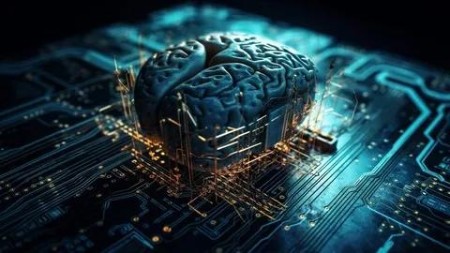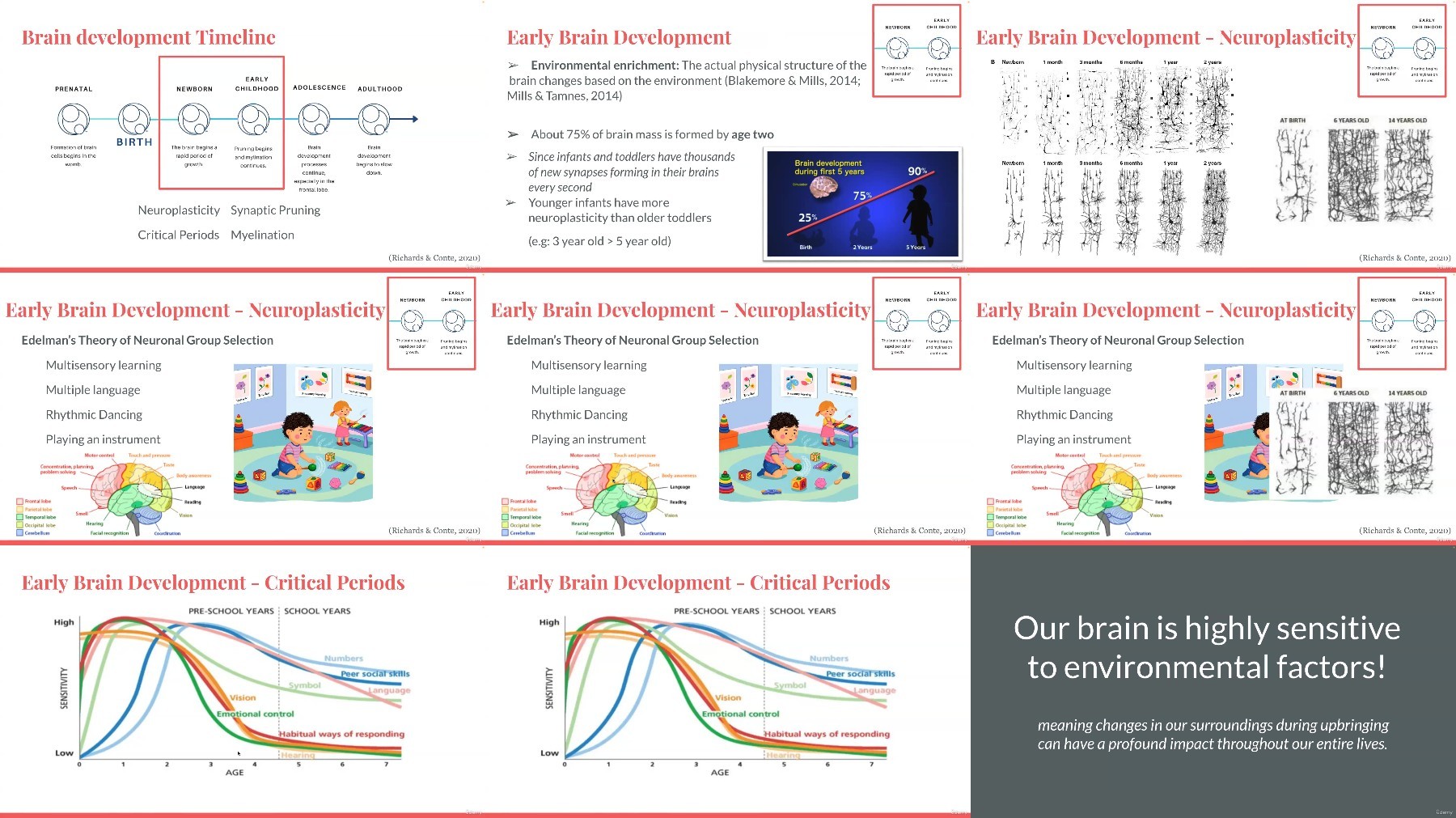Digitalisation And Brain Development

Digitalisation And Brain Development
Published 6/2024
MP4 | Video: h264, 1920x1080 | Audio: AAC, 44.1 KHz
Language: English | Size: 412.01 MB | Duration: 0h 51m
What aspects of brain development can be influenced by digitalization, and how can educators effectively utilise digital
What you'll learn
Learn how digital devices affect cognitive functions like memory and attention.
Study the effects of digitalization on brain development.
Implement evidence-based methods for digital technology use.
Use digital tools to promote critical thinking and creativity.
Requirements
This course does not necessitate any prior experience.
Description
The course aims to shed light on the interplay between digitalisation and brain development while providing practical strategies for educators to leverage digital technologies in their teaching methods.We dive into the science of brain development, outlining how digitalization can influence cognitive functions such as memory, attention, problem-solving, and creativity.We explore the transformative role of digitalisation in the modern educational landscape. We examine how digital tools, ranging from interactive learning platforms to educational apps, have revolutionized teaching and learning processesBy the end of this course, educators will possess a comprehensive understanding of how digitalisation influences brain development, along with practical strategies for effectively utilizing digital technologies in their curriculum.About the SpeakerHuriye Atilgan, an auditory neuroscientist, completed her Master and PhD at UCL Ear Institute, London, researching on how visual cues aid hearing in challenging situations. She later worked with Prof Alex Kwan at Yale University, exploring neural mechanisms of value-based decision-making in mice, using optogenetic techniques and biosensors. Currently, as a Sir Henry Wellcome Fellow, she is investigating the role of the claustrum in mice with Dr Adam Packer and Dr Armin Lak, using advanced methods like electrophysiological recordings and computational models. She has a keen interest in large-scale, pan-cortical communication for higher cognitive function.
Overview
Section 1: Introduction
Lecture 1 Introduction
Lecture 2 Raising Kids in the Digital Era
Lecture 3 Early Brain Development in the Digital Era
Lecture 4 Digital Devices and Brain Development - Misconceptions
Lecture 5 Effects of Digital Devices on Child Brain Development
Lecture 6 Conclusions
Lecture 7 Q&A
This course is designed for professionals who already have experience working with children or are interested in pursuing a career in this field.

What you'll learn
Learn how digital devices affect cognitive functions like memory and attention.
Study the effects of digitalization on brain development.
Implement evidence-based methods for digital technology use.
Use digital tools to promote critical thinking and creativity.
Requirements
This course does not necessitate any prior experience.
Description
The course aims to shed light on the interplay between digitalisation and brain development while providing practical strategies for educators to leverage digital technologies in their teaching methods.We dive into the science of brain development, outlining how digitalization can influence cognitive functions such as memory, attention, problem-solving, and creativity.We explore the transformative role of digitalisation in the modern educational landscape. We examine how digital tools, ranging from interactive learning platforms to educational apps, have revolutionized teaching and learning processesBy the end of this course, educators will possess a comprehensive understanding of how digitalisation influences brain development, along with practical strategies for effectively utilizing digital technologies in their curriculum.About the SpeakerHuriye Atilgan, an auditory neuroscientist, completed her Master and PhD at UCL Ear Institute, London, researching on how visual cues aid hearing in challenging situations. She later worked with Prof Alex Kwan at Yale University, exploring neural mechanisms of value-based decision-making in mice, using optogenetic techniques and biosensors. Currently, as a Sir Henry Wellcome Fellow, she is investigating the role of the claustrum in mice with Dr Adam Packer and Dr Armin Lak, using advanced methods like electrophysiological recordings and computational models. She has a keen interest in large-scale, pan-cortical communication for higher cognitive function.
Overview
Section 1: Introduction
Lecture 1 Introduction
Lecture 2 Raising Kids in the Digital Era
Lecture 3 Early Brain Development in the Digital Era
Lecture 4 Digital Devices and Brain Development - Misconceptions
Lecture 5 Effects of Digital Devices on Child Brain Development
Lecture 6 Conclusions
Lecture 7 Q&A
This course is designed for professionals who already have experience working with children or are interested in pursuing a career in this field.

